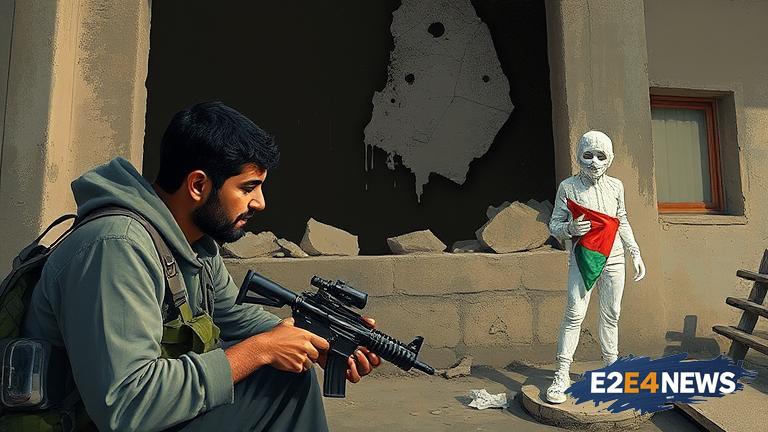The war in Gaza has been a longstanding and complex issue, with various factions and interests at play. Despite the challenges, Palestinian journalists have continued to report on the conflict, often at great personal risk. The death toll of 189 journalists is a stark reminder of the dangers faced by those who dare to tell the story of the conflict. Many of these journalists have been killed while reporting from the front lines, where they have been caught in the crossfire or targeted by Israeli forces. Others have died as a result of airstrikes, artillery fire, or other forms of violence. The impact of these deaths has been felt deeply by the families and loved ones of the journalists, who have been left to pick up the pieces and try to make sense of the senseless violence. The psychological toll of the conflict on Palestinian journalists cannot be overstated, with many reporting feelings of anxiety, depression, and post-traumatic stress disorder (PTSD). Despite these challenges, Palestinian journalists remain committed to telling the story of the conflict, often in the face of overwhelming adversity. The use of social media has been a key factor in the dissemination of information about the conflict, with many journalists using platforms such as Twitter and Facebook to share their reports and updates. However, the Israeli government has been accused of attempting to suppress the flow of information, with many journalists facing censorship and harassment. The international community has been criticized for its response to the conflict, with many arguing that it has failed to take adequate action to protect Palestinian journalists and civilians. The United States, in particular, has been accused of providing military aid to Israel, which has been used to perpetuate the conflict. The European Union has also been criticized for its failure to take a stronger stance against Israeli aggression. Despite these challenges, Palestinian journalists remain determined to tell the story of the conflict, and to bring attention to the plight of those affected by it. The importance of a free and independent press cannot be overstated, particularly in conflict zones such as Gaza. The role of journalists in holding those in power to account and providing a voice for the voiceless is crucial, and their bravery and sacrifice must be recognized and respected. The conflict in Gaza is a complex and multifaceted issue, with deep historical roots and a complex web of interests and alliances. The Israeli-Palestinian conflict is one of the most enduring and contentious issues in the Middle East, with a history of violence and displacement that stretches back decades. The current conflict in Gaza is just one chapter in this long and bloody saga, and it is unlikely to be resolved in the near future. However, by supporting and amplifying the voices of Palestinian journalists, we can help to bring attention to the issue and push for a more just and equitable solution. The use of technology has been a key factor in the conflict, with many journalists using drones and other forms of surveillance to document the violence. The role of social media in the conflict has also been significant, with many journalists using platforms such as Twitter and Facebook to share their reports and updates. However, the Israeli government has been accused of attempting to suppress the flow of information, with many journalists facing censorship and harassment. The international community has a responsibility to protect Palestinian journalists and civilians, and to hold those responsible for the violence to account. The United Nations has a key role to play in this regard, and must take stronger action to protect the rights of Palestinian journalists and civilians. The conflict in Gaza is a humanitarian crisis, and it is imperative that the international community takes action to address it. The death toll of 189 Palestinian journalists is a stark reminder of the human cost of the conflict, and the need for a more just and equitable solution. The bravery and sacrifice of Palestinian journalists must be recognized and respected, and their voices must be amplified and supported. The conflict in Gaza is a complex and multifaceted issue, and it will require a comprehensive and nuanced solution. However, by supporting and amplifying the voices of Palestinian journalists, we can help to bring attention to the issue and push for a more just and equitable solution.
